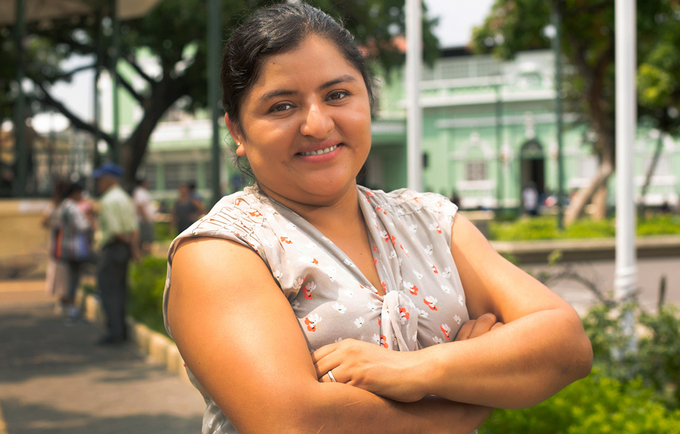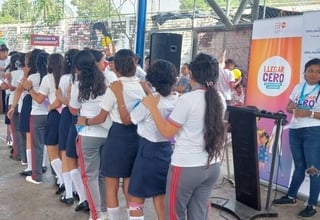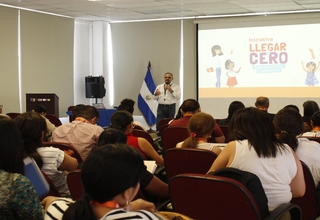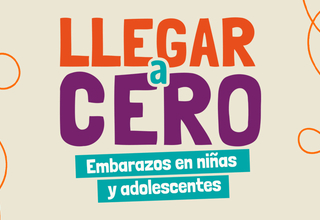We spoke with Veronica Jimenez, Head of Women’s Unit of the Municipality of Tacuba in the department of Ahuachapan. The performance of her duties has allowed her to be part of the process of awarding scholarships of the Program ‘Realize Your Dreams’, Within the framework of the initiative ‘Getting to zero pregnancies in girls and adolescents’ that is implemented in her municipality and in nine more in the western area, in El Salvador.
We talked about the work in which she actively participates.
Why do you think Tacuba has a high rate of teenage pregnancies?
I think it is because of lack of opportunities. Both education and employability. If a girl wants to continue studying more than ninth grade or high school she has to leave the municipality [Ahuachapan, 31 minutes by bus is the departmental head is the closest place where they find high school]. Same if you want to find a well-paid job. There is a great lack of local opportunities. You have to go to the departmental header or go to Santa Ana if you want to find other opportunities. To this we must add the high level of common crime.
What is the 'Realize Your Dreams' program?
This program began in February 2022 when it was presented in ‘Ciudad Mujer’. We were invited, as all the municipalities of the western zone, because here are the municipalities with the highest rates of teenage pregnancies. In the mayor’s office it was decided to support it and bring it to Tacuba. We started working with people who are leaders of each zone, who were mapping the cases they found to participate in this benefit.
So far we have scholarships to fifteen girls in this community.
How does this program work?
The people who are leaders of their community and who made this mapping of possible cases of violence, selected the fifteen girls who meet the parameters to receive the scholarships.
I tell you that one of the cases that most caught our attention is that of a 15-year-old girl who was a victim of sexual abuse, with report and everything. As a result of that violence, she had a baby and left school. She was the victim of forced displacement due to the threats she received.
But the case did not stay there. The mother of this girl left the home and the older sister too, leaving another young child in the care of the underage victim and her father. The two of them are in charge of getting the two small children ahead. In fact, he didn’t even think about going back to school, much less because he was so embarrassed that people knew he had a baby.
How are these cases treated?
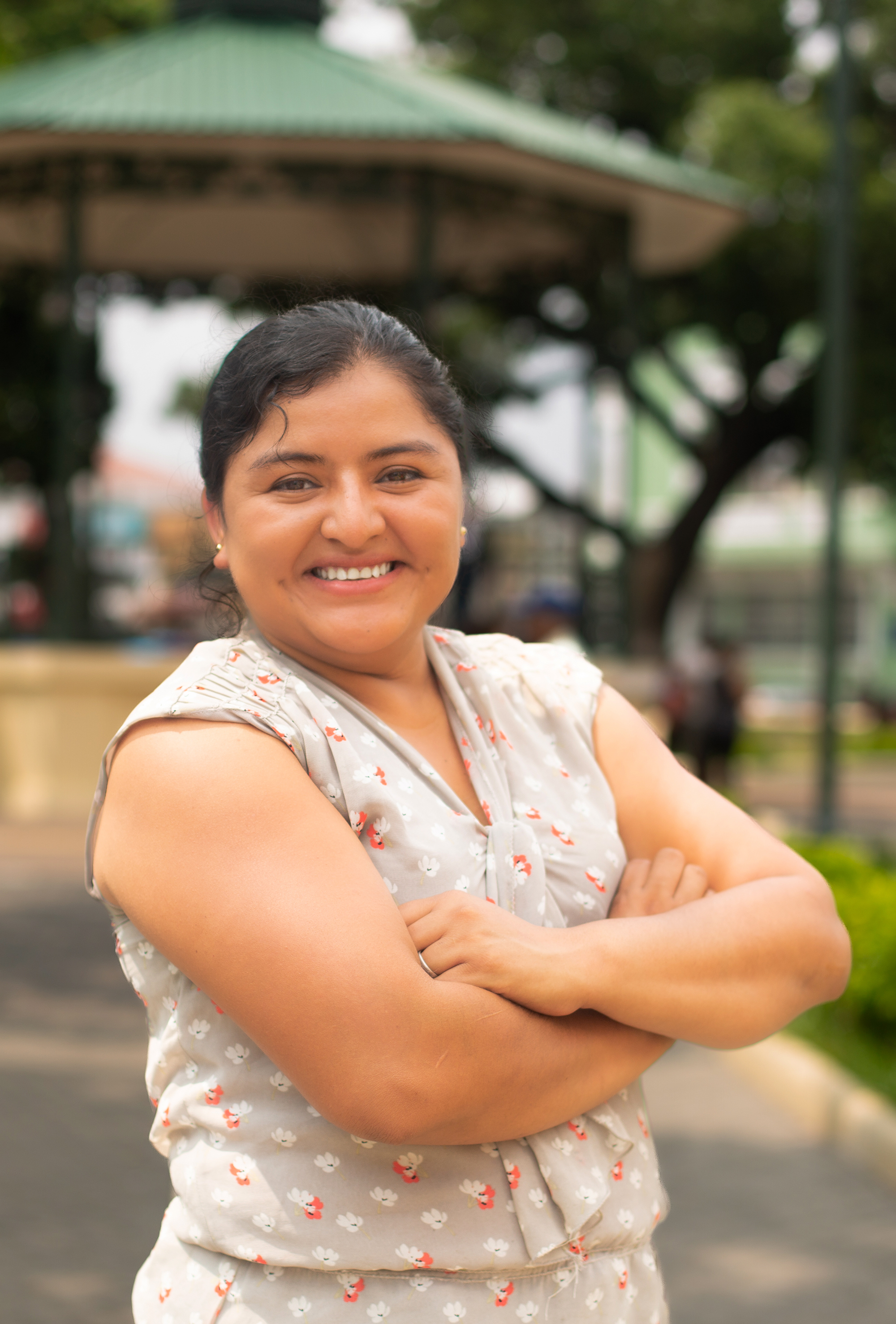 |
|
The first thing is to provide psychological care and emotional support, both to her and her dad. It is done through the Salvadoran Institute for the Development of Women, ISDEMU.
Then, through the mayor’s office we give monthly follow-ups through visits to know how they are doing. We provide care to young children, through a unit designed for it, so that they can meet with the one who gives them care and the followup.
There are also interviews with EDUCO, a cooperative NGO that works for children and in defense of their rights, and with UNFPA staff to identify scholarship recipients and those with the highest percentages in their qualifications, as well as with the highest number of women in the country. They are destined to be part of ‘Realize Your Dreams’.
Finally, the Canadian Embassy joins this chain of institutions to grant the funds.
Tell us a little about those parameters to choose the beneficiaries
Through the leaders of each zone, possible cases of violence against girls or cases already confirmed are identified. They are people of scarce resources and most of the time they are women-led households. Another parameter is that they are of indigenous origin and that other situations of vulnerability are happening. Cases that have been supported with evidence.
The municipality makes the first approaches to evaluate these situations, physical health, psychological, if they have already left the studies or not, etc. And begins to make the work plan according to each case.
When you talk about these processes you do so with a smile…
It gives me a lot of security and motivation because I was also a very young mother. At age 18 I already had my baby. You know that these issues are difficult to deal with because before there was a lot of taboo and now I see that social projects are in accordance with the reality that demands immediate and concrete actions to encourage girls to continue their studies to have a better future, not only for them, but for the whole country.
As a municipality we have limited opportunities, in education and nearby employment sources. But I am very proud to be able to work to encourage adults and adolescents to continue their studies and have a better life. Also, as a mom, I understand that sometimes we have no chance of giving our children the future we want.
I would like to include technical careers closer to this area, teach them entrepreneurship and how to monetize their talents. Sometimes it happens that there is a lot of local talent; but there is no seed capital.
What would you like people who read you now to know?
We talk about babies having babies. And all of them are financially dependent on someone else. But as long as they have their studies, they will be more likely to have a source of income upon graduation from school.
By giving them monthly what the scholarship includes, I am very pleased to see that they find a solution to continue studying, that they no longer have to fight to pay for transportation to school or that they did not have anyone to take care of the baby to continue.
We are used to visible projects: Streets and bridges; but life projects are just as important to have a positive impact on a family and the whole community because among these girls will emerge future independent professionals.
